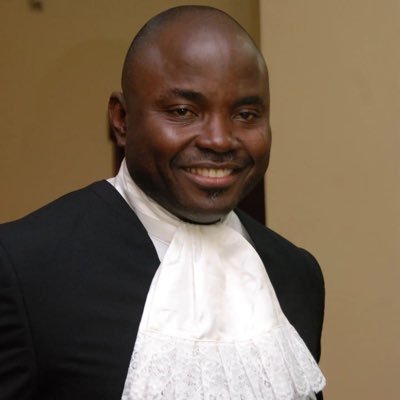There is a sad constitutional aberration going on in Imo State. The governor is said to have appointed an Ag. Chief Judge, who is not the most senior judge of the Imo State Judiciary. Before showing who is the most senior judge on the bench of the Imo State judiciary, it is necessary to outline the processes for appointments of chief judges and judges of the High Court of the states in Nigeria. The processes are set out in the constitution.
Section 270 (1) of the constitution of the Federal Republic of Nigeria 1999 provides inter alias that: There shall be a High Court for each State of the Federation. Section 270 (2) provides that: The High Court of a State shall consist of –
(a) a Chief Judge of the State; and
(b) such number of judges of the High Court as may be prescribed by a Law of the House of Assembly of the State.
Section 271 (1) provides that: appointment of a person to the office of Chief Judge of a State shall be made by the Governor of the State on the recommendation of the National Judicial Council subject to confirmation of the appointment by the House of Assembly of the State. Section 271 (2) says: The appointment of a person to the office of a Judge of a High Court of a State shall be made by the Governor of the State acting on the recommendation of the National Judicial Council. Section 271 (3) provides that: A person shall not be qualified to hold office of a Judge of a High Court of a State unless he is qualified to practice as a legal practitioner in Nigeria and has been so qualified for a period of not less than ten years.
The section dealing with an acting appointment of the chief judge of any state in Nigeria, including Imo State of Nigeria, is set out under section 271 (4) of the 1999 constitution. It sets out how an acting Chief Judge of any state in Nigeria, including Imo State, shall emerge. It provides that : If the office of Chief Judge of a State is vacant or if the person holding the office is for any person unable to perform the functions of the office, then until a person has been appointed to and has assumed the functions of that office, or until the person holding the office has resumed those functions, the Governor of the State shall appoint the most senior Judge of the High Court to perform those functions.
Section 271 (5) then provides that: Except on the recommendation of the National Judicial Council, an appointment pursuant to subsection (4) of this section shall cease to have effect after the expiration of three months from the date of such appointment and the Governor shall not re-appoint a person whose appointment has lapsed. There is no doubt that under section 271 (4) of the constitution, as shown above, the governor of any state in Nigeria does not have a discretion in appointments of an Ag. Chief Judge. He must appoint the most senior judge of the High Court of the State as an Ag. Chief Judge.
The language of the Constitution is clear. In Imo State, the most senior judge on the Imo State judiciary, as of today, is Hon Mr Justice Ijeoma Agugua. He was appointed and sworn in as judge of Imo State High Court in 1993. The next most senior judge is Hon. Mr Justice C A Ononeze Madu. He was appointed and sworn in as judge of Imo State High Court in 2004. The next on the line is Hon. Mr Justice E O Agada. He was appointed and sworn in as judge of High of Imo State in 2008. The fourth most senior judge is Hon. Mr Justice TN Nzeukwu. He was appointed as judge of Imo State High Court in 2008.
From the news making round, the governor of Imo State purported to have now appointed his lordship Hon Mr Justice TN Nzeukwu as an acting CJ of Imo. How. Why. Did His Lordship TN Nzeukwu agree to be appointed in place of his most senior judge? How did this happen? To emphasise the points being made, let me refer again to the provisions of section 271(4) of the 1999 constitution. It provides that: If the office of Chief Judge of a State is vacant or if the person holding the office is for any person unable to perform the functions of the office, then until a person has been appointed to and has assumed the functions of that office, or until the person holding the office has resumed those functions, the Governor of the State shall appoint the most senior Judge of the High Court to perform those functions.
There is no judicial officer who does not know the value of seniority on the bench. The bar and the bench placed a serious premium on seniority and professional conduct in the conduct of their affairs of the profession. For the fourth most senior judge to accept to be appointed an acting Chief Judge in place of the most senior judge and in the face of the clear provisions of the constitution is the most sacrilegious constitutional misconduct that deserves urgent sanctions.
I think it is time that the bench respects itself. How can a judicial officer who is not the most senior judge of the high court accept to be made the Acting Chief Judge in place of his seniors and in the face of the clear provisions of section 271(4) of the 1999 and then takes judicial oaths to defend and uphold the very constitution he desecrated in accepting the position of Acting Chief Judge he knows his not qualified to be appointed to.
NJC must intervene in Imo State appointment of an acting chief judge. The governor has no discretion. He may not like the most senior judge, but he can not bypass him. The Nigerian Bar Association must make a statement, and lawyers should not recognise Justice TN Nzeukwu as an Acting CJ. While it is in the interest of some politicians to rubbish the judiciary, the judiciary itself must insist and refuse to be rubbish. The most senior judge in Imo State should be sworn in. It is his constitutional right to be so sworn in. I say no more.





